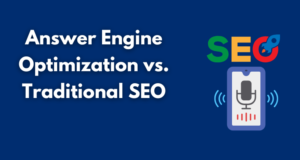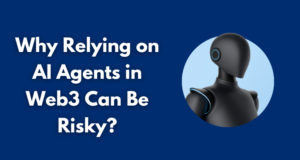Online privacy has emerged as a critical concern, as we traverse the internet’s vast expanse, our personal data remains vulnerable to breaches.
The advent of AI-enhanced VPN technology has transformed our approach to online protection. These advanced tools, powered by artificial intelligence, provide a more secure and private browsing environment.
Examining the evolution of privacy tools reveals the transformative impact of AI integration. This article explores the significance of smart browsing and the critical role of AI-enhanced privacy tools in protecting our online presence.
Table of Contents
ToggleThe Evolution of Online Privacy Threats

Online privacy threats have evolved significantly, transitioning from basic tracking to sophisticated surveillance. As our reliance on digital services intensifies, the imperative for enhanced cybersecurity grows exponentially.
From Basic Tracking to Advanced Surveillance
The methodologies employed for tracking online activities have become increasingly complex. Initially, tracking was confined to simple cookies and IP address logging. Yet, technological progress has propelled tracking to encompass:
- Advanced cookie tracking: Cookies that endure deletion and track users across various sessions.
- Fingerprinting techniques: Identifies devices based on their configuration, browser type, and other attributes.
- Behavioral analysis: Tracks user behavior to forecast future actions and preferences.
Why Traditional Privacy Tools Fall Short
Traditional privacy tools, such as basic VPNs and antivirus software, are insufficient against evolving threats. These tools often:
- Lack advanced threat detection capabilities.
- Fail to adapt to new surveillance techniques.
- Do not provide personalized privacy settings.
Consequently, there is a pressing need for advanced cybersecurity solutions capable of mitigating contemporary privacy threats.
The New Landscape of Digital Privacy Concerns
The digital privacy landscape is now beset by complex challenges, including:
- Data breaches: Unauthorized access to sensitive information.
- Surveillance capitalism: The exploitation of personal data for profit.
- Advanced persistent threats (APTs): Sophisticated attacks aimed at specific targets.
Addressing these concerns necessitates a multi-faceted approach, integrating smart browsing practices and state-of-the-art cybersecurity technologies.
How AI is Transforming VPN Technology
The integration of AI with VPN technology heralds a transformative era in online security and privacy. This synergy transcends mere incremental enhancements, marking a profound shift in the operational dynamics and data protection efficacy of VPNs.
Machine Learning for Threat Detection
The incorporation of machine learning for threat detection stands as a cornerstone of AI’s contribution to VPN technology. It entails the development of AI models capable of instantaneously identifying and mitigating threats.
Real-time Analysis of Network Patterns
AI-driven VPNs excel in the real-time scrutiny of network patterns, enabling the prompt identification of anomalies indicative of security breaches. This capability is indispensable for preemptively countering evolving threats.
Predictive Security Measures
AI-facilitated VPNs also exhibit predictive prowess, leveraging historical data and pattern recognition to forecast and prevent future security breaches. This foresight empowers the implementation of preemptive security measures, safeguarding user data.
Adaptive Encryption Protocols
AI’s influence extends to the development of adaptive encryption protocols. These protocols dynamically adjust encryption levels in response to data type and security context, achieving a balance between security and performance.
Intelligent Server Selection and Routing
AI’s role is further evident in the optimization of intelligent server selection and routing. Through the analysis of traffic patterns and server loads, AI ensures the selection of the most suitable server for users, guaranteeing both superior performance and enhanced security.
This holistic approach to VPN technology, underpinned by AI, establishes a new benchmark for online privacy and security. As threats evolve, AI’s role in fortifying VPN capabilities will become increasingly vital.
Key Benefits of AI-Enhanced VPNs for Everyday Users
As online threats evolve, AI-enhanced VPNs offer a proactive solution for everyday users. These advanced privacy tools are not just about encrypting your internet connection; they’re about providing a sophisticated security framework that adapts to emerging threats.
Proactive Protection Against Emerging Threats
AI-enhanced VPNs utilize machine learning algorithms to detect and mitigate threats before they can cause harm. This proactive approach ensures that users are protected against the latest malware, phishing attacks, and other cyber threats.
By continuously analyzing patterns and anomalies in network traffic, these VPNs can identify and respond to threats, providing a robust defense mechanism.
Personalized Privacy Settings
AI-driven VPNs can offer personalized privacy settings based on user behavior and preferences. This means that users can enjoy a tailored VPN experience, with settings that adjust to their specific needs, improving both security and usability.
Seamless Performance Optimization
One of the significant advantages of AI-enhanced VPNs is their ability to optimize performance. By intelligently selecting the most appropriate servers and adjusting protocols in real-time, these VPNs ensure a smooth, fast, and reliable browsing experience.
VPNLY: Leading the AI Privacy Revolution
VPNLY is at the forefront of the AI privacy revolution, integrating cutting-edge machine learning technology into its VPN services. By leveraging AI, VPNLY provides users with enhanced security, personalized experiences, and optimized performance.
Conclusion: The Future of Intelligent Online Privacy
The advent of AI-enhanced VPNs heralds a transformative era in online privacy. Traditional privacy measures are now insufficient against the escalating sophistication of threats. AI-enhanced VPNs, equipped with advanced encryption and intelligent server selection, present a formidable defense against these challenges.
The incorporation of AI into VPN technology has ushered in a new era of proactive defense against emerging threats. It enables personalized privacy settings and optimizes performance seamlessly. VPNLY stands at the vanguard of this innovation, harnessing AI to bolster user privacy and security.
As the landscape of online privacy continues to evolve, the significance of AI-enhanced VPNs will intensify. Their capacity to evolve with new threats and enhance performance positions them as vital components in the future of online privacy. By embracing AI-driven VPN technology, users can safeguard their digital security and privacy amidst the complexities of the modern digital world.










